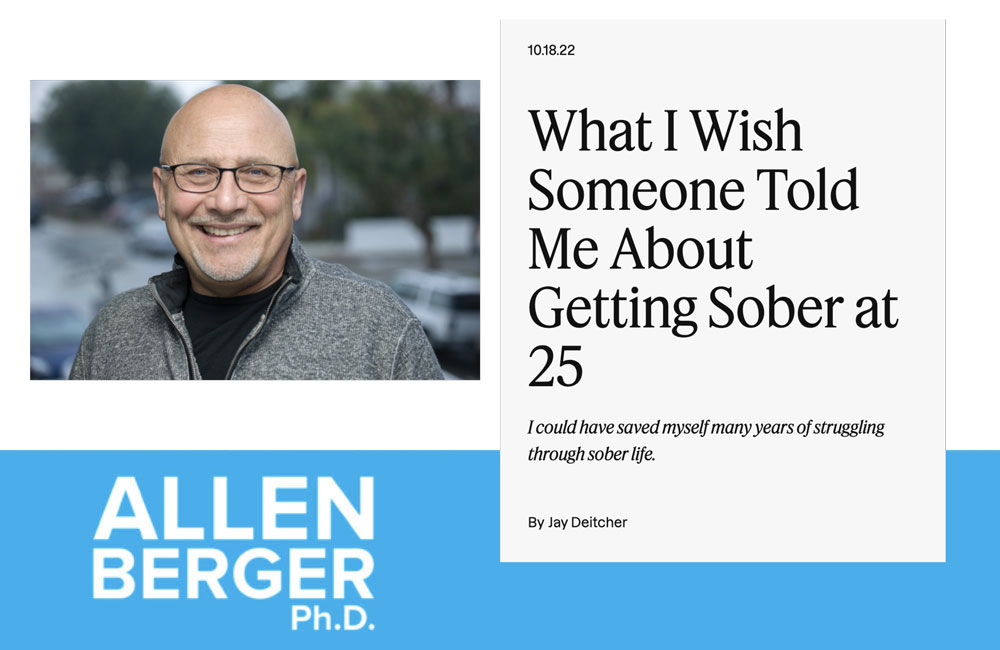“That’s a common mentality among people who misuse substances because we tend to identify with the disease and lose sight of who we are.”
Allen Berger, PhD.
What I Wish Someone Told Me About Getting Sober at 25
by Jay Deitcher
I started drinking and misusing pharmaceuticals and alcohol because I was terrified of interacting with others. As a teen, I knew something was wrong, but instead of seeking help for my anxiety, I thought it was just an aspect of my personality that I had to suffer through, and booze and pills seemed to make life tolerable. When I started drinking heavily during my junior year of high school, alcohol gave me the confidence to interact with my peers. I stumbled through parties cracking jokes about myself and falling on my face. My drunken antics made people laugh, and I finally felt accepted.
But the booze turned on me. Within a few years, I became a recluse, drinking alone in my childhood bedroom. I told myself that I’d never drink and drive, yet numerous times, I found myself behind the wheel. Then there was the time I came to in the middle of the road with blood caked on my face. Turns out, I’d fallen while walking from my car to a party.
Days disappeared into drunken hazes or they slothed past me, and nothing brought me joy. Actually, some research in lab animals suggests that substance misuse can throw the brain’s reward system out of whack, making normally pleasurable activities like eating great food unappealing. At the time, I felt incredibly alone in my substance misuse. But, as a 2020 survey suggests, about 8.2 million people in the U.S. aged 18 to 25 reported having a substance use disorder within the past year—it’s wildly common. That said, the same survey suggests that only about 445,000 of people 18 to 25 received treatment for a substance use disorder.

